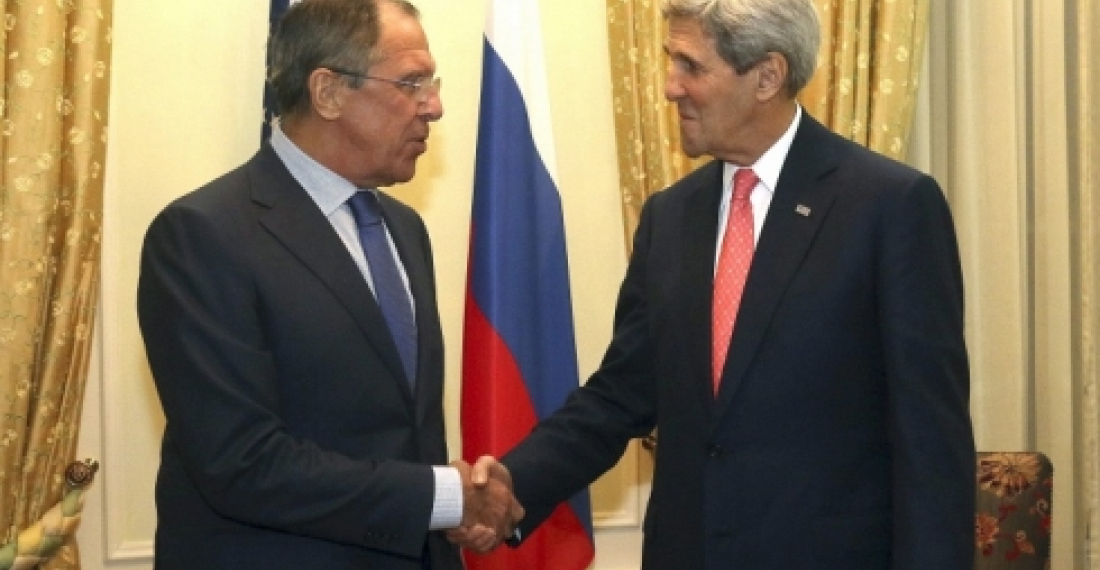Russian Foreign Minister Sergei Lavrov and U.S. Secretary of State John Kerry, who had a telephone conversation on Sunday, agreed to meet soon to discuss possible joint steps their countries might take to promote the settlement of various conflict situation, the Russian foreign ministry said, as reported by Itar-Tass
"The Russian Minister and the U.S. Secretary of State agreed to hold a meeting in the near future to discuss possible steps of Russia and the United States to promote the settlement of various conflict situations and to discuss the current state of bilateral relations," the ministry said, adding that the conversation had been initiated by the U.S. side.
The Russian News Agency Itar-Tass also said that Kerry also offered congratulations on the occasion of the 70th anniversary of the Victory in the Great Patriotic War of 1941-1945 and stressed the enormous contribution of the Russian people and other peoples of the former Soviet Union in the defeat of Nazism. Lavrov, in turn, noted that Russia honoured the memory of joint struggle of the allies against Nazi Germany.
source: commonspace.eu with itar-Tass
photo: Sergai Lavrov and John Kerry (archive picture)







